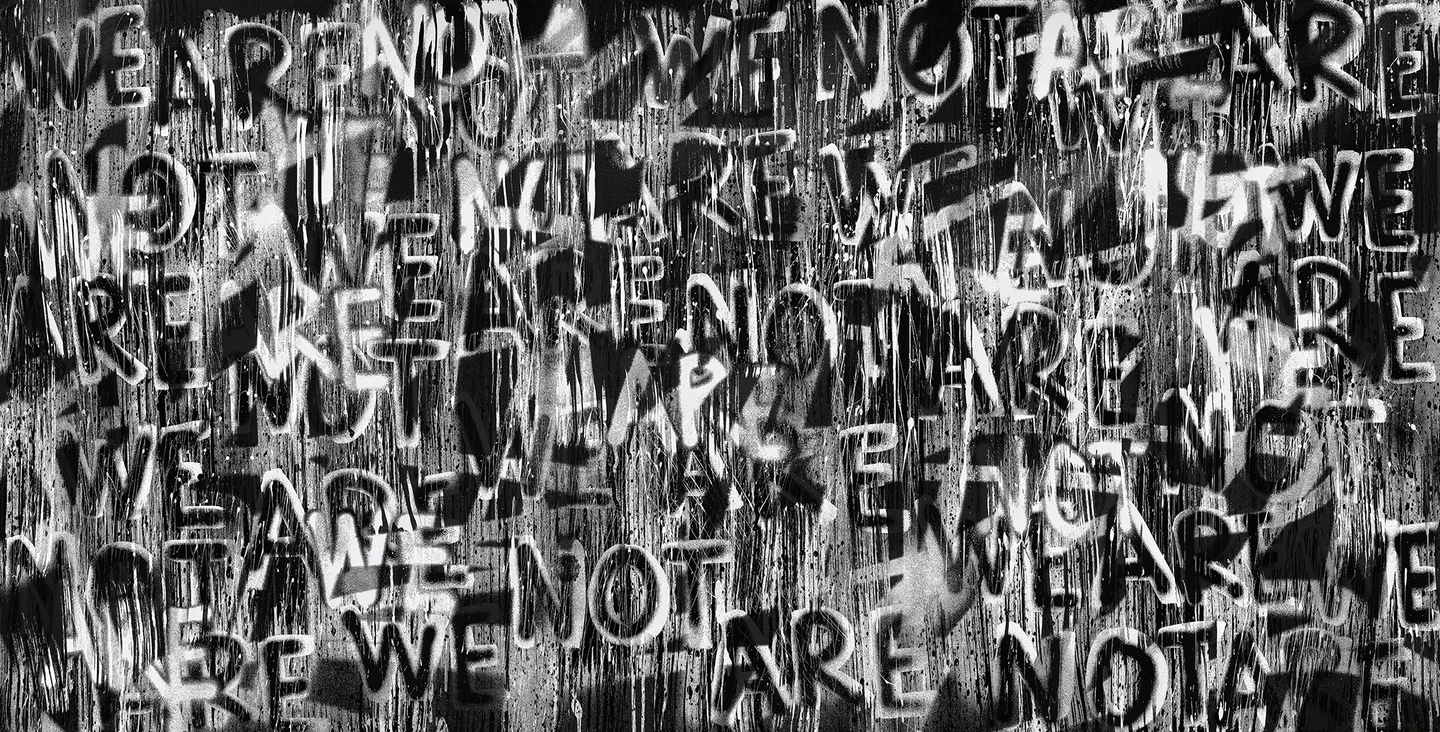“What is your name?” “Where are you from?” “How did you end up here?” “Can you feel it?” “Does it hurt?” With these and other questions, the American artist Adam Pendleton’s solo exhibition at the Mildred Lane Kemper Art Museum sets up an elaborate call-and-response network that articulates a sense of history as fragmented poetics. The exhibition will showcase a polyvocal assemblage of new and recent paintings, drawings, and video portraits that together reveal Pendleton’s interest in creating a conversation between mediums, as well as his belief in abstraction’s capacity to destabilize and disrupt.
Pendleton’s work is driven by his evolving concept of Black Dada, which, in 2008, he described as a “way to talk about the future while talking about the past; it is our present moment.” The term is borrowed, in part, from “Black Dada Nihilismus,” a 1964 poem by Amiri Baraka (formerly known as LeRoi Jones, 1934–2014), and it reflects the artist’s foundational project of “looking back at multiple things at once.” Premised on an approach that is asyntactic and combinatorial, his paintings and other works address the codes of representation and abstraction, the visual and literary uses of language, and the aesthetics of Blackness as an open-ended signifier.
A fully illustrated catalog will accompany the exhibition. The book will be Pendleton’s most ambitious to date, with an indexical structure that juxtaposes new works with elements from past publications and other archival material. Essays by exhibition curator Meredith Malone and scholars Hal Foster and Joshua Chambers-Letson, along with a conversation between Pendleton and the prominent critic Isabelle Graw, will advance an understanding of his approach to abstraction within the framework of historical and contemporary painting. The catalog will be published by the Museum and distributed nationally and internationally by the University of Chicago Press.
